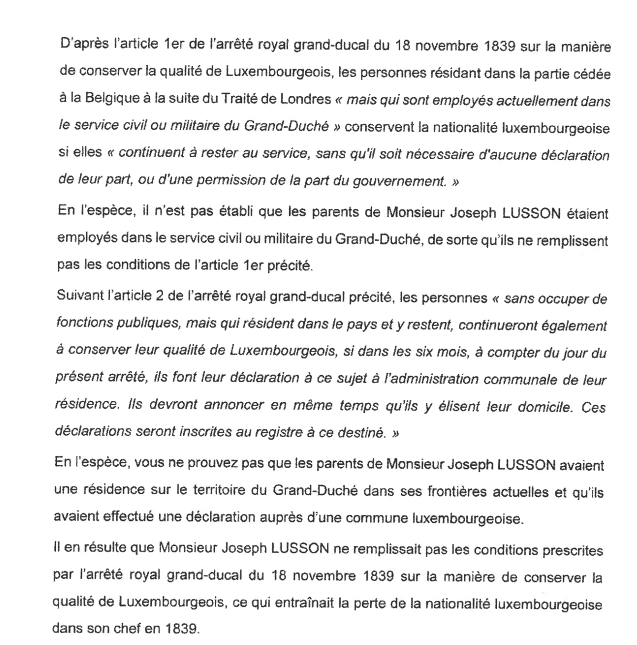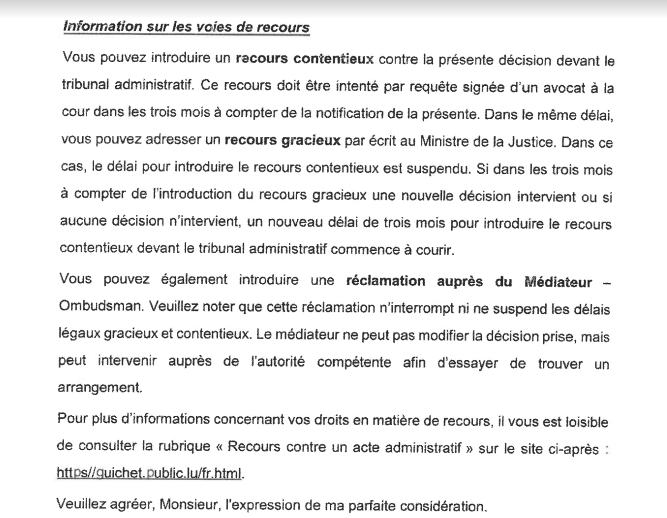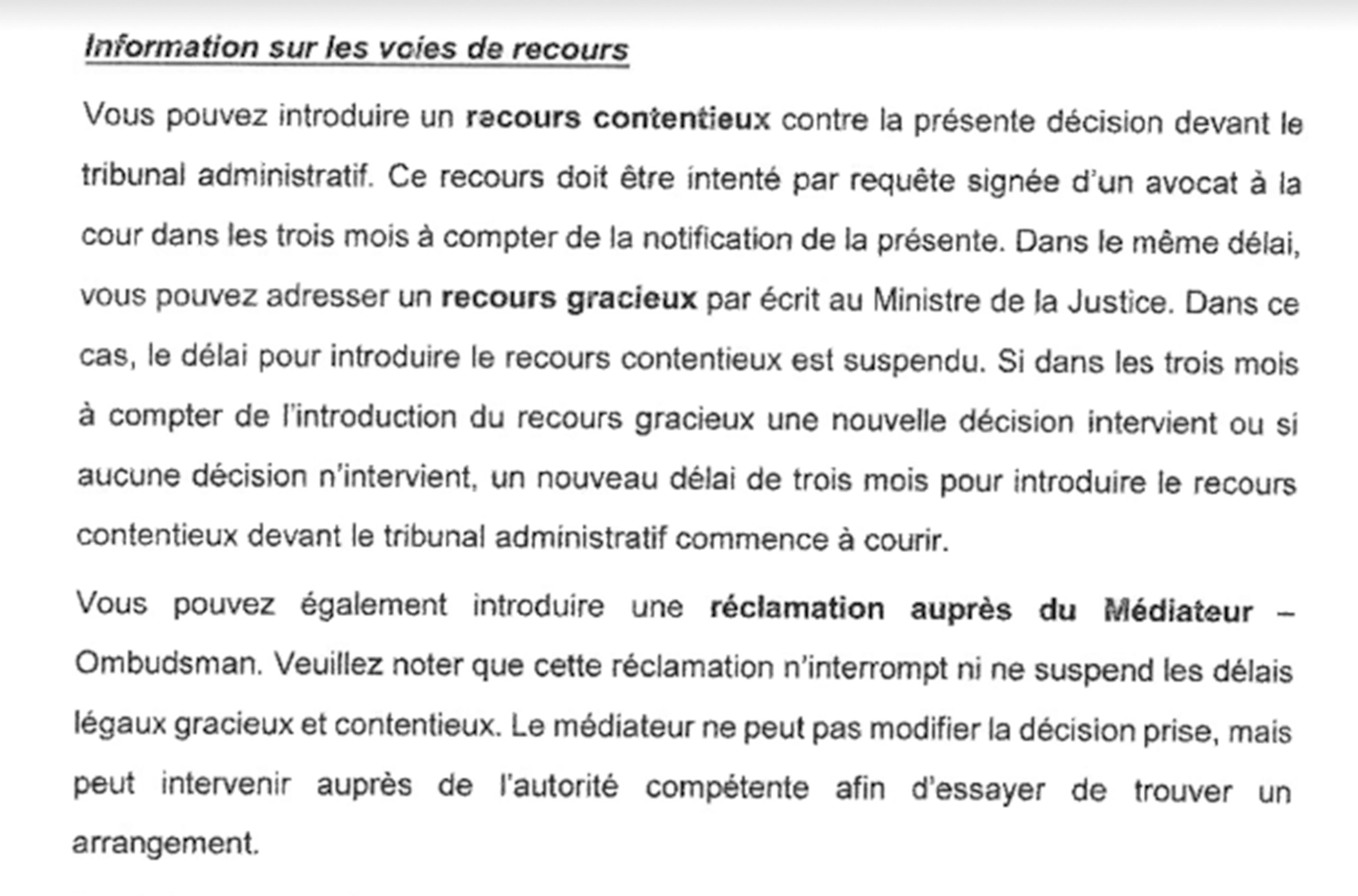Acquiring Luxembourg citizenship by descent has long been a nuanced topic, particularly for individuals with ancestral ties to regions that were historically part of Luxembourg but are now in Belgium. Our earlier blog on the Province of Luxembourg, Belgium offers a brief overview of the 1839 separation between the two countries.
Introduction
Over the years, we’ve received numerous inquiries from individuals born in what was once the Grand Duchy of Luxembourg (between 1815 and 1838), but which became part of Belgium in 1839.
All of our clients who have submitted fully truthful applications for Luxembourg dual citizenship have been granted citizenship to date. Recently, however, we were approached by someone who applied for Luxembourgish citizenship independently, without support from LuxCitizenship, and was denied. The denial letter from the Ministry of Justice provides a rare and insightful look into the Luxembourg government’s stance on claims from people born in the former territory ceded to Belgium.
In this blog, we’ll examine the legal principles and precedents highlighted in the denial letter, with a particular focus on the interpretation of Article 7.
Historical Context
From 1815 until early 1839, the Province of Luxembourg was part of the Grand Duchy of Luxembourg. However, the Treaty of London in 1839 resulted in this territory being ceded to Belgium. This historical backdrop is key to understanding the complexities surrounding citizenship claims by descendants of individuals born in the region during that period.
Article 7: The Legal Framework
Article 7 of the amended law of March 8, 2017, governing Luxembourg nationality, outlines two essential conditions for recognizing citizenship by descent:
- Ancestral Birth in Luxembourg: A direct ancestor must have been born within the current borders of the Grand Duchy of Luxembourg before April 19, 1939. This eligibility date is extended by one year on January 1 of each subsequent year after 2017.
- Transmission of Citizenship: The ancestor must have had the legal ability to pass on their Luxembourg nationality to their descendants. (Before 1969, only fathers could pass on their nationality to children born within wedlock.)

Case Study: Joseph Lusson’s Descendants
The denial letter in question focuses on Mr. Joseph Lusson, born in 1826 in what was then Attert, Luxembourg (now part of the Province of Luxembourg, Belgium). It outlines why his descendants do not qualify for Luxembourgish citizenship under Article 7. Although Lusson was born in Luxembourg territory, the Ministry of Justice emphasized that maintaining Luxembourg nationality after the 1839 cession required:
- Government Service: Active employment in Luxembourg’s civil or military sectors, as per the grand ducal decree of November 18, 1839. The Ministry confirmed that a search was conducted, and Lusson did not meet this criterion.
- Residence and Declaration: Alternatively, individuals had to relocate to the Grand Duchy within six months of the decree’s enactment and submit a declaration to their new commune confirming their intention to remain Luxembourgish citizens. Applicants must provide this proof themselves, as the government does not conduct such searches.

The applicant had 90 days after the initial denial to present documentation proving the ancestor’s relocation or demonstrate that the Ministry’s analysis was flawed. However, these certificates are rare, as few people moved between Belgium and Luxembourg at the time.
Implications for Citizenship Claims
This denial highlights several key factors for those pursuing Luxembourgish citizenship by descent:
- Proof of Continuous Nationality: Applicants must show that their ancestors maintained Luxembourg nationality through government service or official residency declarations post-1839.
- Direct Lineage: Clear, documented proof of direct descent from a Luxembourg national is required.
- Historical Specificity: The unique history of the Province of Luxembourg necessitates meticulous documentation and a deep understanding of the period.
Conclusion
The Ministry of Justice’s denial letter provides valuable insight into the application of Article 7 for descendants of individuals from the Province of Luxembourg, Belgium. It underscores the rigorous requirements for proving continuous nationality and direct lineage. This analysis highlights the importance of thorough documentation and careful consideration of historical nuances when navigating Luxembourg nationality laws.
For further questions or assistance with Luxembourg citizenship applications, contact our expert team at LuxCitizenship. We’re here to help you navigate the legal complexities with confidence.

